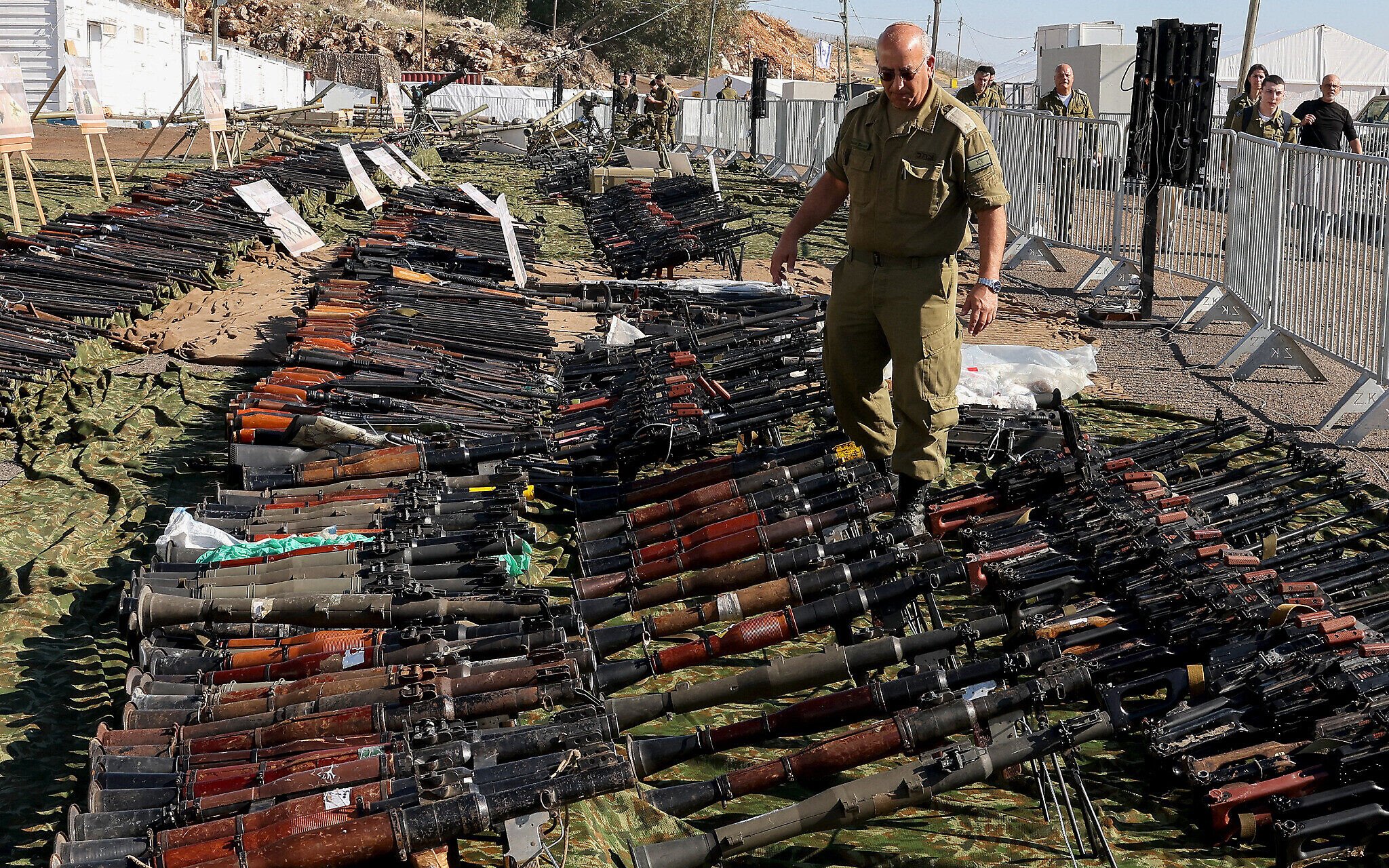



This Editor’s Note was sent out earlier Wednesday in ToI’s weekly update email to members of the Times of Israel Community. To receive these Editor’s Notes as they’re released, join the ToI Community here.
Almost 15 months after Hamas invaded, a catastrophic Israeli political and military complacency regarding this country’s fundamental safety in the region has now been replaced by a recognition that every front is potentially unstable.
While much of the international community has rushed to embrace Syria’s new jihadist leadership, for instance, Israel is not merely wary, but has been proactive in minimizing the military consequences should the rebels’ ostensible congeniality prove only as superficial as their suits. Hence the ongoing airstrikes on weapons stores and infrastructure, and the IDF’s seizure and retention of the border buffer zone.
Hezbollah is down, but is regarded as emphatically not out. There is no expectation in Israel that the terror group will now skulk off into oblivion, nor any confidence that internal change in Lebanon will compel it to do so. Rather, the assessment is that Hezbollah will work assiduously to rebuild its capabilities and to revive efforts to attack — including to infiltrate across the border — however many years this may take. Last month’s ceasefire is holding for now, but the IDF is bolstering its defenses on the border.
The threat du jour, posed by the Houthis in Yemen, underlines the multiplicity of challenges for an Israeli security establishment — notably including an intelligence corps — that has limited resources. New Defense Minister Israel Katz threatened on Tuesday that Israel will target Houthi chiefs, but the fact is that Israeli intel has, until now, hardly been focused on providing the information and assessing the means for carrying out any such missions.
Early in this war, Israeli security chiefs were wont to say that the Houthis were beyond anyone’s control — and that includes their Iranian backers and suppliers — and shrug helplessly when asked how Israel would be able to deter them. With millions of Israelis now forced to dash for the bomb shelters several nights a week, the military echelons know they can’t afford to shrug any longer. More, and more potent, Israeli strikes are in the offing, but there is no great confidence that these will stop the Houthi fire. As my colleague Lazar Berman writes here, a wider international coalition would be more likely to succeed.
In the West Bank, meanwhile, there has been a relative decline in terrorist attacks and attempted attacks, and the IDF is watching as the Palestinian Authority intensifies its activities against terrorist cells in Jenin. Unlike many key figures in Benjamin Netanyahu’s coalition, the military does not see an Israeli interest in the collapse of the PA, but neither does it trust the PA.
The lightning-fast ouster of Bashar al-Assad’s regime in Syria has also underlined that all bets are potentially off even in the apparently fairly stable regimes in Israel’s two other neighboring states, Egypt and especially Jordan, with which it has maintained peace treaties for decades.
Turkey, too, has entered more deeply into Israeli calculations — because of the intensity of President Recep Tayyip Erdogan’s loathing of Israel and the strength of his military. Where Ankara is concerned, the Israeli mindset might best be summed up as cooperation when possible, mistrust at all times.
Regarding Iran, the Israeli assessment would now seem to be that the ayatollahs — exposed and humiliated by the radical degradation of their two main proxies, Hezbollah and Hamas — are likely to try to attain nuclear weapons. Israel further appears to believe that it knows what Iran is doing or not doing when it comes to weaponization.
Here, as on many of these active and potential war fronts, Israel would appear to be waiting for the return to office of US President-elect Donald Trump. If all else fails, Israel has always said it will do whatever it takes to prevent Iran from attaining nuclear weapons. But as the New York Times’ astute and well-informed David Sanger noted in an overview on Tuesday, “destroying Iran’s nuclear infrastructure would be extremely difficult for Israel, unless Mr. Trump authorized the kind of help that his predecessors refused to offer.”
Trump’s attitude to the region will also shape Israel’s ongoing policy in Gaza, where 100 hostages, unthinkably, remain in captivity 446 days after Hamas and other terror groups invaded and abducted them while slaughtering 1,200 others across southern Israel.
The IDF continues to seek intel and attempt to create opportunities for rescue operations, but the murder of six hostages by their captors at the end of August would appear to have been a turning point where such efforts are concerned.
As its own probe, published on Tuesday, confirmed, the IDF did not have concrete, real-time information regarding those six hostages and, indeed, incorrectly and fatally assessed that no hostages were being held in the specific Tel Sultan area of Rafah. The determination to ensure no repetition of this tragedy radically constrains the IDF’s ability to attempt hostage rescues, and also radically constrains the IDF’s ability to battle Hamas in even the general Gaza areas where it knows or assesses hostages may be held.
As things stand, therefore, the IDF is focused on tackling Hamas guerrilla forces in the far north of Gaza, from where almost all civilians have been evacuated, ahead of a potential pilot project under which one or more private American security firms might come in and take responsibility for aid distribution. Except that, for now, there is no sign of this happening.
Extremely limited in their operations in southern Gaza, security chiefs see a wide Israeli interest in a hostage deal — in line with the formal goals of the war; the sacred obligation to the hostages, their families and the nation; and the potential for more forceful efforts to prevent a Hamas return anywhere in Gaza once the hostages are returned. To put it brutally, the sooner that all or even almost all of the living hostages are released, the greater the IDF’s capacity to step up operations against Hamas in southern Gaza. Unfortunately, this is an equation that Hamas understands all too well.
One final word: It is outrageous that, almost 15 months after Hamas was able to burst across the border, no state commission of inquiry has yet been established, much less issued its findings, into what went wrong and who was to blame.
The prime minister has, to date, managed to prevent the establishment of such a probe because he knows that its conclusions and recommendations would prove politically devastating for him. The abiding failure to shed the fullest light on the catastrophe, and thus, crucially, to maximize the ability of the political and security leadership to prevent further such disasters, however, is deeply dangerous and potentially devastating for all of Israel.

